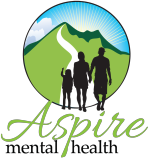Trauma
According to the National Institute of Mental Health, childhood trauma is defined as:
“The experience of an event by a child that is emotionally painful or distressful, which often results in lasting mental and physical effects.”
HOW CAN I IDENTIFY CHILDHOOD TRAUMA?
Birth – Age 2
Traumatized children tend to show signs that they are feeling fearful and vulnerable. Some common behaviors that may signal trauma for older children include:
Behavioral Signs of Trauma
Behavioral Signs of Trauma
Behavioral Signs of Trauma
Behavioral Signs of Trauma
http://lookthroughtheireyes.org/what-is-childhood-trauma/
“The experience of an event by a child that is emotionally painful or distressful, which often results in lasting mental and physical effects.”
HOW CAN I IDENTIFY CHILDHOOD TRAUMA?
Birth – Age 2
Traumatized children tend to show signs that they are feeling fearful and vulnerable. Some common behaviors that may signal trauma for older children include:
Behavioral Signs of Trauma
- Appetite changes
- Clinginess
- Difficulty sleeping
- Difficulty paying attention or concentrating
- Headaches
- Increased aggression
- Problems interacting with other children
- Problems at school
- Regressive behaviors (acting like they did when they were younger)
- Stomachaches
- Temper tantrums
- Anger or irritability
- Anxiety
- Depression
- Emotional numbness
- Extreme emotional distress
- Inconsolable crying
- Nightmares
- Sadness
- Withdrawal or avoiding engagement with others
Behavioral Signs of Trauma
- Appetite changes
- Clinginess
- Difficulty sleeping
- Difficulty paying attention or concentrating
- Headaches
- Increased aggression
- Problems interacting with other children
- Problems at school
- Regressive behaviors (acting like they did when they were younger)
- Stomachaches
- Temper tantrums
- Anger or irritability
- Anxiety
- Depression
- Emotional numbness
- Extreme emotional distress
- Inconsolable crying
- Nightmares
- Sadness
- Withdrawal or avoiding engagement with others
Behavioral Signs of Trauma
- Appetite changes
- Clinginess
- Difficulty sleeping
- Difficulty paying attention or concentrating
- Headaches
- Increased aggression
- Problems interacting with other children
- Problems at school
- Regressive behaviors (acting like they did when they were younger)
- Stomachaches
- Temper tantrums
- Anger or irritability
- Anxiety
- Depression
- Emotional numbness
- Extreme emotional distress
- Inconsolable crying
- Nightmares
- Sadness
- Withdrawal or avoiding engagement with others
Behavioral Signs of Trauma
- Appetite changes
- Clinginess
- Difficulty sleeping
- Difficulty paying attention or concentrating
- Headaches
- Increased aggression
- Problems interacting with other children
- Problems at school
- Regressive behaviors (acting like they did when they were younger)
- Stomachaches
- Temper tantrums
- Anger or irritability
- Anxiety
- Depression
- Emotional numbness
- Extreme emotional distress
- Inconsolable crying
- Nightmares
- Sadness
- Withdrawal or avoiding engagement with others
http://lookthroughtheireyes.org/what-is-childhood-trauma/
